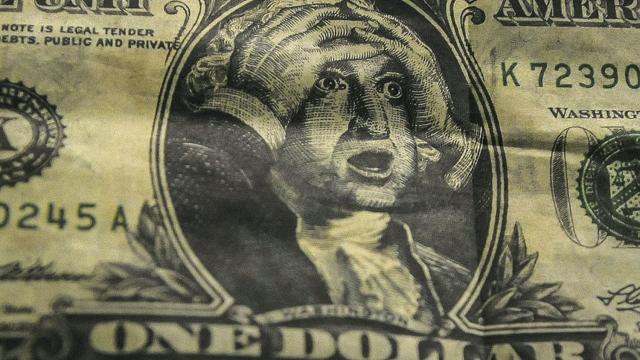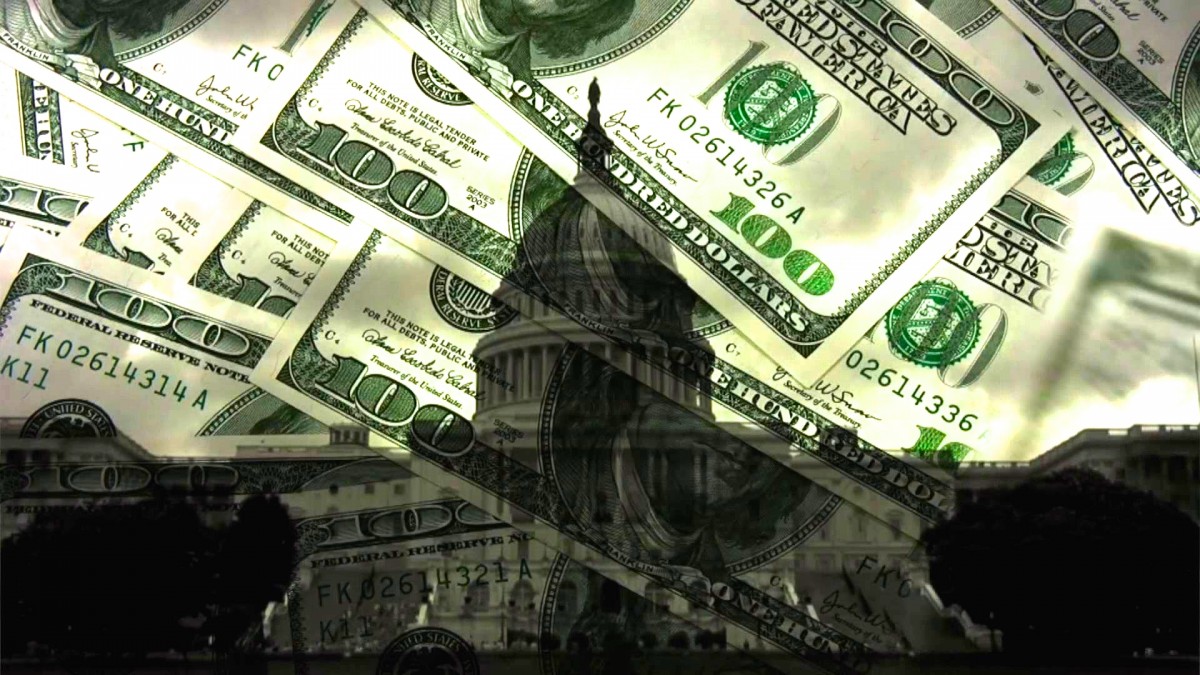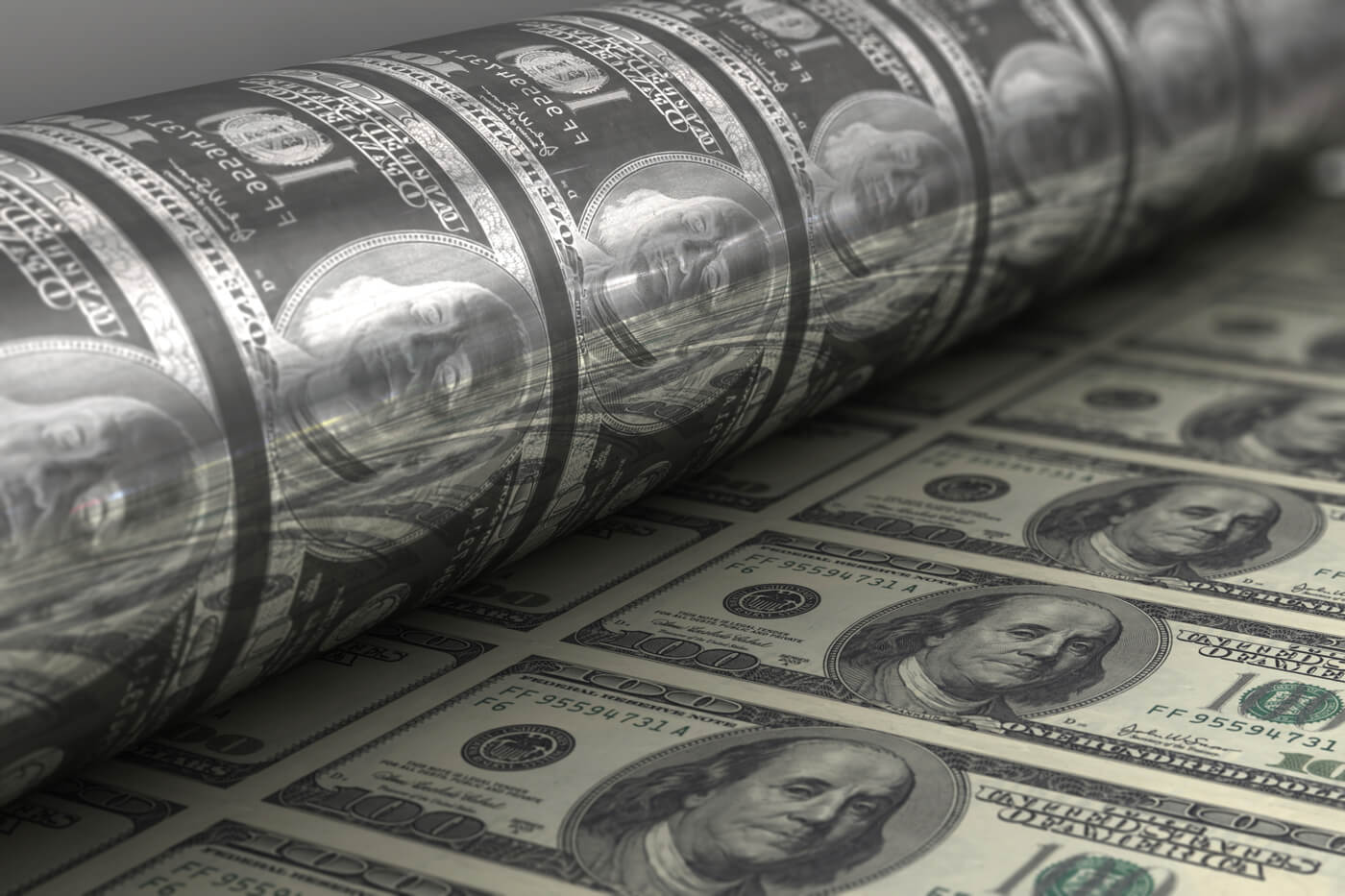
The U.S. Federal Reserve decided recently to keep interest rates at their historic low, though warned of an eventual increase either by the end of the year or early 2016. The choice to keep rates low was largely a reaction to economic conditions outside the United States, in emerging markets and China. But when rates do rise, the world will learn just how interdependent the economies of the advanced and emerging market nations are, with crises likely to erupt and spread across many sectors and societies.
Why is this so?
The United States dollar has the distinction of being the sole world reserve currency: most trade between nations is conducted in U.S. dollars, most major commodities are priced in U.S. dollars, significant amounts of both public and private international debt are held in U.S. dollars, and currency values fluctuates in relation to the U.S. dollar. As a result, countries around the world build up large reserves of foreign currencies – especially dollars – in their central banks and finance ministries, which allows them to continue to finance trade and maintain their own currencies' values through the buying and selling of U.S. Treasuries, or debt.
This role of the dollar gives the U.S. a special international privilege; despite being the largest debtor in the world, U.S. debt is still among the safest for investors to hold. As a reserve currency, demand is always high for dollars and therefore the United States has been able to continue to run large deficits for decades, relatively free of the fear that investors will lose faith in the currency.
As the centerpiece of the global monetary system, the U.S. dollar – and by extension, the Federal Reserve – wields immense influence over the stability and structure of the global economic order. When interest rates are incredibly low in the U.S. – as they have been for the previous 15 years, and without a single rate raise since 2006 – U.S. dollars are cheap and flow around the world with ease. Through large quantitative easing (QE) programs, the country's central bank purchased trillions of dollars worth of U.S. Treasury debt from banks, asset managers, insurance companies, mutual funds and other investors. Buying U.S. debt kept the currency value low and was supposed to spur investment, job creation and economic growth.
What resulted, however, was something different. As the Fed purchased U.S. debt from financial market players, it effectively pumped trillions of dollars into those markets in what a former banker and manager of the Fed’s QE program called “the greatest backdoor Wall Street bailout of all time.” This money was then channeled by financial markets out of advanced and into emerging market economies, particularly into their corporate sectors. With the global financial crisis of 2007-8, followed by the European debt crisis of 2010, the advanced economies of the world have been slow to recover, and their growth has been minimal and uneven. Instead, it's been the emerging market economies that were the driving engine of global economic growth since the financial crisis.
Having learned the hard lessons of holding large U.S. dollar-denominated debts in the past, the emerging market nations this time have built up significant international currency reserves – and have kept much of their national debt in domestic currencies, making them less susceptible to changes in interest rates enacted by the Federal Reserve and other foreign central banks. But the private, or corporate, sectors of many emerging market nations have meanwhile built up large U.S.-dollar denominated debts, fueled by the massive flood of money from quantitative easing programs of the U.S., UK, European Union and Japan.
When interest rates rise, corporate downsizing, bankruptcies and layoffs will spread, and these countries will have to make some important decisions. The resulting economic and financial crises, growing unemployment and social unrest will force governments and their central banks to decide whether or not to provide stimulus spending or bail out certain industries and financial markets, which will in turn further build up their national debts. The combination of severe crises in private sector markets and growing national debts will likely increase the hesitation and "disciplinary" reactions of financial markets. Central banks in emerging market nations, with some exceptions, would be forced to increase their interest rates in order to attract capital to those countries, but this would also likely exacerbate unemployment and put a strain on the countries' debt payments, which are denominated in their own currencies.
While large reserves can hold back the storm for some time, a prolonged period of higher interest rates (or even the prospect of higher rates to come) could exhaust most national reserves, which are already dwindling at a faster pace than at any time since the global financial crisis. Further, countries will be slower to accumulate new reserves, since they were largely built up due to years of trade surpluses in which emerging markets experienced immense economic growth from exports of commodities to developed and other emerging market nations, notably China.
China’s economy, as we're by now aware, has been slowing down and facing increased instability. Its technocrats are hurriedly trying to restructure the economy from export-dependent to increasingly domestic- and consumer-dependent, bringing it more into line with the other large advanced economies. But the slowdown and instability has now spread to other emerging market nations, with China’s demand for foreign commodities decreasing, leading to a collapse in trade-related revenue for other export-dependent nations.
The collapse of commodity and oil prices has already resulted in large strains on emerging economies. Increased interest rates will exacerbate these problems, as money will flow out of emerging economies and into the United States as well as other advanced economies. Many countries will face pressure to increase their own rates to keep their currencies valued closely to the U.S. dollar, or possibly increase quantitative easing programs (mass debt purchases) in order to counter deflationary pressures.
The traditional central banking tool of fighting high inflation by increasing interest rates is being considered at a time when inflation is already dangerously low in advanced economies, threatening to push them into a deep recession or depression. In the European Union and Japan, the central banks are undertaking large QE programs partly in an attempt to increase inflation. Increased U.S. rates could further strain these efforts, and the result could well be another major global economic crisis, with increased risk of recession and depression in the advanced economies as export industries collapse, unemployment grows, debt payments rise, defaults occur, and financial crisis looms. Emerging markets could very well be pushed into major internal and regional economic and financial crises of their own, drawn out over many years and spilling over into advanced economies, with banks and other financial institutions heavily exposed to the contagion.
Higher interest rates in the U.S., like in the past, may still function as a disciplinary mechanism. Emerging markets, the driving force of global economic growth for the past decade, could be pushed back down to a more manageable size for the U.S. and other advanced economies to dictate terms to. While the advanced economies will no doubt suffer a great deal, the effects of the coming financial crises are likely to be greater in emerging and developing societies. Between 2004 and 2014, the advanced economies moved from holding the majority share of global GDP wealth to the developing and emerging economies holding the majority of that wealth. A new financial crisis could flip the scales once again, giving the advanced economies increased leverage in international economic institutions and diplomatic circles like the International Monetary Fund and the Group of 20 (G-20). Since the IMF will likely play an important role in the response to international economic crises to come, it can again dictate the terms to countries around the world in need of loans. Those conditions will still largely be defined by the U.S. and other advanced economies.
Without a doubt, the terms and conditions will be directed toward "restructuring" the economies of nations in need, furthering their transformation into modern market economies while advancing the interests of financial and corporate power. Austerity and "structural reforms" will be demanded by those who hold the purse strings; as we've learned in the past, the disciplinary effect of increased interest rates is often used to advance the spread and influence of market economies, banks and corporations. But with the interdependence of advanced and emerging economies growing to unprecedented levels, a large crisis in emerging markets will likely have significant spillover effects in advanced economies.
The consequences are anyone’s guess, but if the history of financial and debt crises over the past three decades has taught us anything, it’s that when the U.S. Federal Reserve increases interest rates, much of the world suffers. The largest creditors – whether nations, banks, asset managers, insurance giants or central banks – have a lot of money to make in terms of receiving larger interest payments. Debtors, on the other hand – whether households, companies or entire countries – find themselves at increased risk of crisis and default. But such crises will spread back to the creditors with their large liabilities in the form of defunct loans. Financial crises, bailouts and debt crises in advanced economies could result, with a profoundly destabilizing effect on the global economy. Financial crises tend to get bigger and meaner each time they come around. There’s no reason to think the next time will be any different.
3 WAYS TO SHOW YOUR SUPPORT
- Log in to post comments














